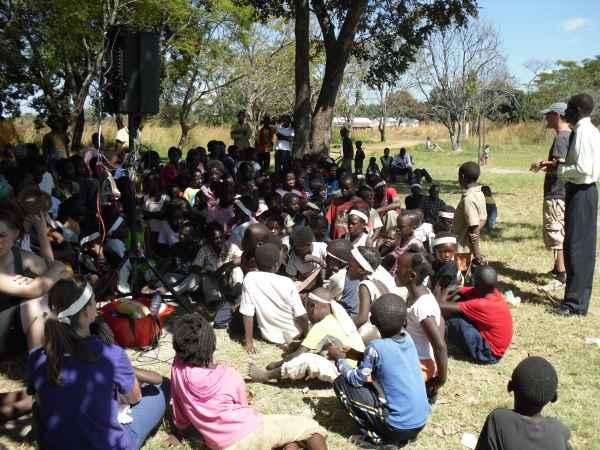
How to raise funds for projects abroad
How to raise funds for projects abroad
Gemma Mills – Kapumpe Christian Primary School, Arise Orphanage and Kaniki Bible College, Zambia
Often what motivates an individual to give is seeing a need. People give to cancer charities, particularly after they or someone they are close to has battled with cancer as they’ve seen first hand how vital the work is. People give to homeless charities after seeing countless homeless people on their journey to work. So how do you encourage people to give when they can’t see the need as the work is based somewhere else?
According to the latest findings (at time of writing), 11%[1] of those who gave to charity in the last four weeks of asking gave to overseas and disaster relief causes. So, it is possible.
So for this topic, I’ve asked Gemma Mills, who served with her family in Zambia for her tips and words of advice:
1. How do you raise funds for a project people can't see?
Communication is vital! Vision sharing, newsletters, photos, social media etc… are all important aspects in communication what's happening and give people a flavour. If people have been to visit the area/project etc… use them as advocates, because they will be able to communicate face to face which is important. Regular updates on progress is important as people can soon forget.
2. What creative ways have you used to raise money for the work?
We more or less just shared our vision and asked people to give. However, two things we did (which appeared more appealing to people who weren't Christians) was first when we were buying the land we divided it up into square metres and got people to 'buy' squares of land. When raising money for the building we made a virtual lego model and got people to buy bricks and then the model reflected how far we were towards raising the total amount we needed to complete the building.
3. How do you make donors feel valued?
Communication and appreciation. (there are probably many other ways, but that's what we did)
4. How is giving affected by the fact the currencies are different?
When we were raising the money we had to look at the exchange rate. All our costs were in local currency. So, we worked out how many pounds equivalent we needed by using the lowest rate over previous months (although initially, the currency was quite stable so it wasn't an issue) and gave a margin for currency fluctuations. For example, the kwacha varied between 10.2zmk to 11zmk = £1. So we calculated it at 10zmk to £1.
In the second phase of the building we 'played' a bit of a game. The local currency was losing value and fluctuating a LOT. So, we watched the exchange rates very closely so we could transfer funds and get the most local currency we could for our pounds. Which meant we had more local currency, which worked in our favour for a short time until prices started to rise. Thankfully it all balanced out in the end. However, for the final phase finished this year, more money had to be raised because the cost of living increased a huge amount so costs rocketed after the project had already started. Many people didn't understand this and wondered why the right amount hadn't been asked for in the beginning.
Gemma, with her husband Tim and their two children, served faithfully in Zambia for numerous years. They now live in the UK working for a local Church where Gemma continues to champion the work of overseas mission as she sits on the Mission Support group. If you want to know more about their work in Zambia, please see https://www.kaniki.org/.
[1] https://www.cafonline.org/docs/default-source/about-us-publications/caf-uk-giving-2019-report-an-overview-of-charitable-giving-in-the-uk.pdf